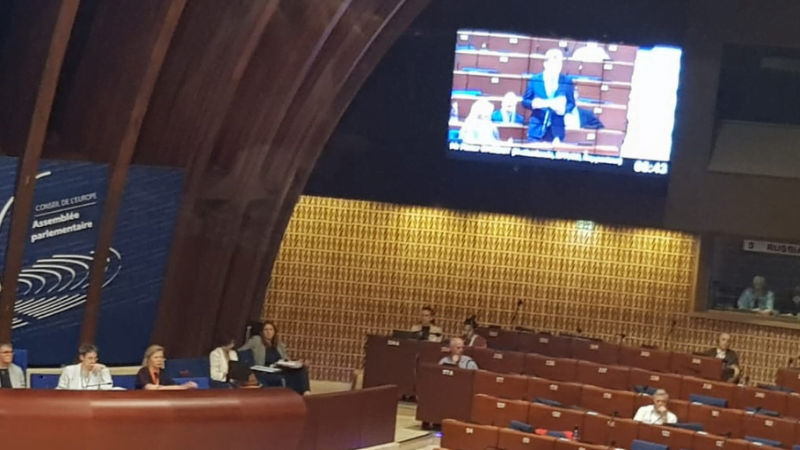The Parliamentary Assembly of the Council of Europe (PACE) has voted to adopt the report prepared by Special Rapporteur Pieter Omtzigt, with an overwhelming majority of 72 to 18 with 3 abstentions.
Members of the Assembly repeatedly praised the thoroughness of Omtzigt’s “precise, honest” report, underlining the seriousness of rule of law failings in Malta, and raising concerns over the progress and impartiality of the investigation into the assassination of Daphne Caruana Galizia.
German member Norbert Kleinwaechter noted that the report documented “a lot of single elements that present a very clear picture of what is going on in Malta”, citing the need to defend the rule of law both in that country and in Europe.
Referring to the assassination of Daphne Caruana Galizia, Lord George Foulkes said, “We need a far more energetic investigation, and I hope we can agree on the demand for a public inquiry so the family can have justice,” adding, “that Pieter Omtzigt is subjected to attacks by Malta government MPs for this work is doubly disgraceful.”
Objections were raised to the report by Maltese MP Manuel Mallia, who questioned the need for an immediate public inquiry into the assassination, suggesting that the Council of Europe relied on newspaper reports to claim the murder investigation was not moving forward.
The only other objections were raised by the representatives from Azerbaijan, who positioned Omtzigt’s report as an attempt to use the assassination of Daphne Caruana Galizia to attack their country, with Asim Mollazade going as far as to call it part of a larger “information war” against Azerbaijan. This perception of victimization was a strange response from a country which wasn’t even the subject of the report.
Paul Gavan, member from Ireland referred to these objections, saying, “I’ve been quite taken aback at the attempted defence by my colleague from Malta, and my colleague from Azerbaijan,” adding, “I know what happens to journalists in Azerbaijan.”
Gavan also expressed disappointment in the proposed amendments. “When you’re in a hole, stop digging. This is clear what’s happening in Malta,” characterizing it as, “absolutely unanswerable as far as facts laid out by the Rapporteur.”
The Council of Europe report cites “systemic failings” in the rule of law and democratic checks and balances in Malta. It states that Malta’s government institutions, criminal justice system and law enforcement bodies do not comply with European standards on the rule of law.
Significant weaknesses include a lack of independence on the part of the police and other authorities, and excessive power in the hands of the Prime Minister. Worse, that concentration of power has been systematically abused and reinforced.
The report also highlights no less than 10 concerns about the investigation into the murder of Daphne Caruana Galizia, describing it as suffering from a “prevailing culture of impunity”. It notes that weaknesses of the rule of law and the criminal justice system are directly relevant to its analysis of the authorities’ response to the journalist’s brutal murder.
Malta is the first EU Member State to be subjected to the scrutiny of a Special Rapporteur.
Rather than use this report as an opportunity to bring Malta in line with European standards on the rule of law, the government has consistently acted to undermine it, with MP Manuel Mallia, going so far as to send a message to the Malta delegation of the South EU Summit suggesting that the event would be a good opportunity to “lobby against Omtzigt’s report”.
“Neither I, nor the Legal Affairs Committee (of the Council of Europe) are enemies of Malta,” Omtzigt said in response. “On the contrary, we believe that the rule of law is a universally good thing, for both authorities and citizens.”
The ParliamentaryAssembly of the Council of Europe (PACE) has now given its full support to an independent inquiry into the assassination of Daphne Caruana Galizia to start within the next three months, pointing out that failure of the Maltese government to do so will be a breach of Article 2 of the European Convention on Human Rights (ECHR).
The Council of Europe report concluded by warning that “Malta’s weaknesses are a source of vulnerability for all of Europe”, adding that if “Malta cannot or will not correct its weaknesses, European institutions must intervene.”
This vote by the Parliamentary Assembly was the first step in that intervention.
Caroline Muscat is reporting from Strasbourg














